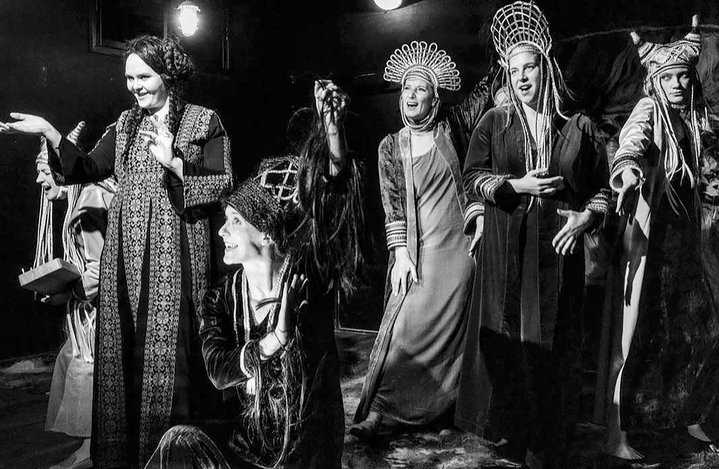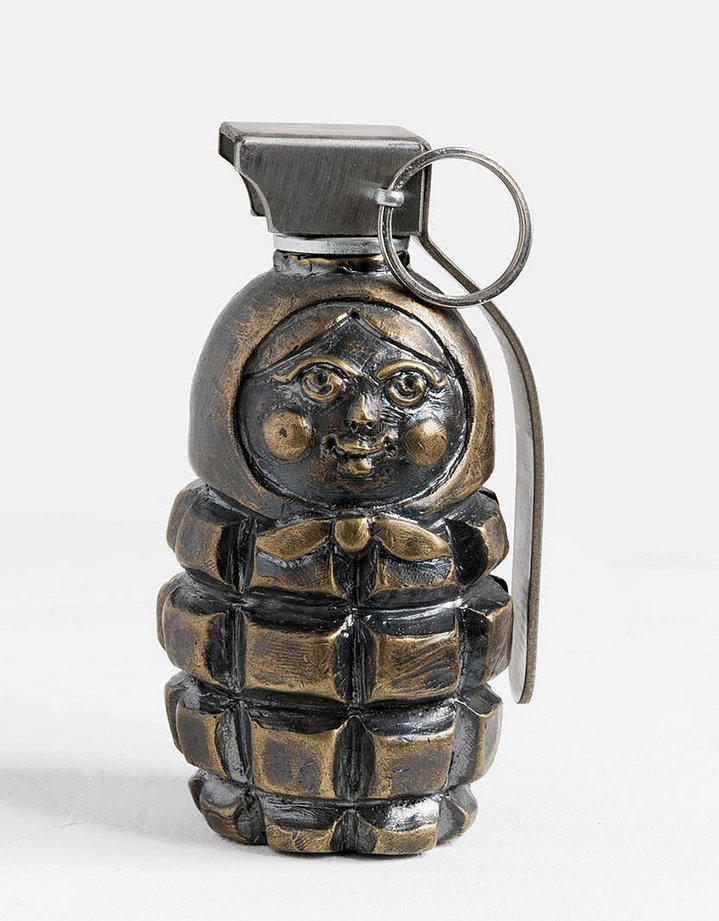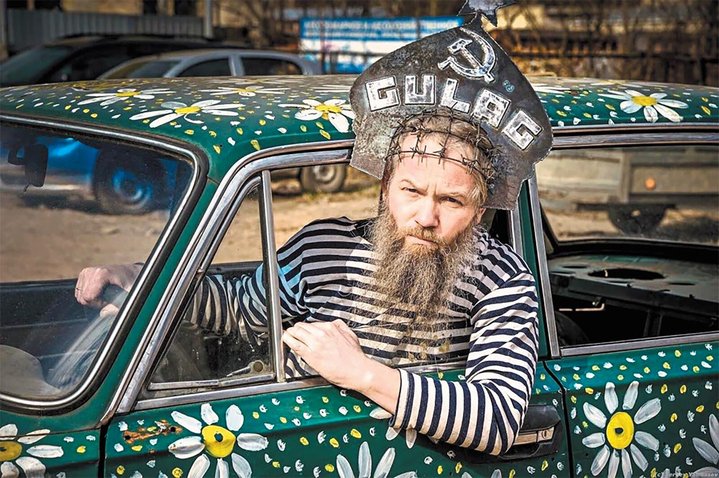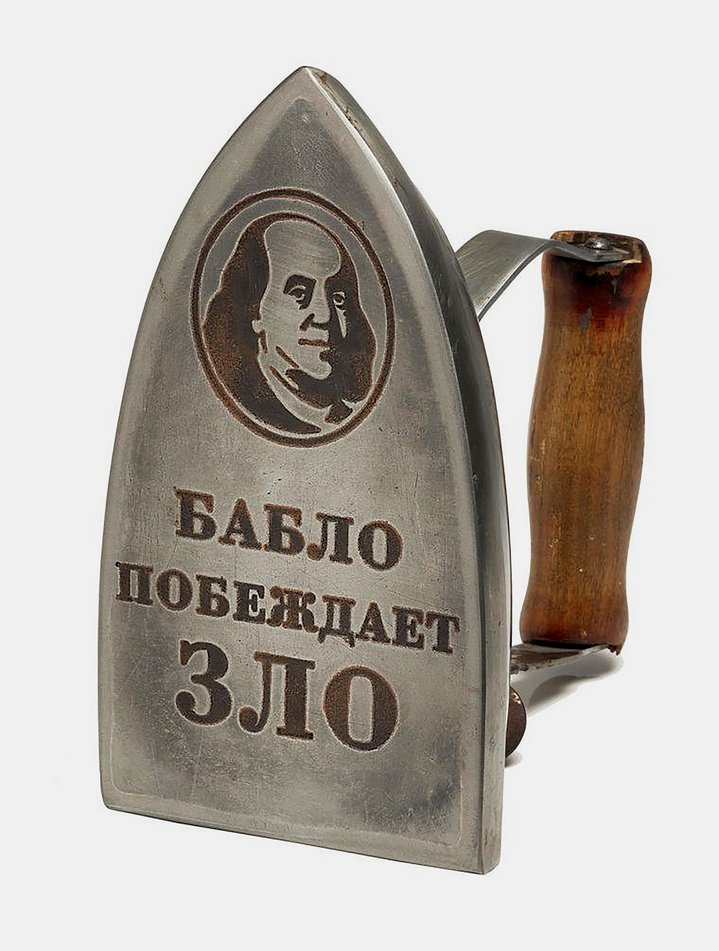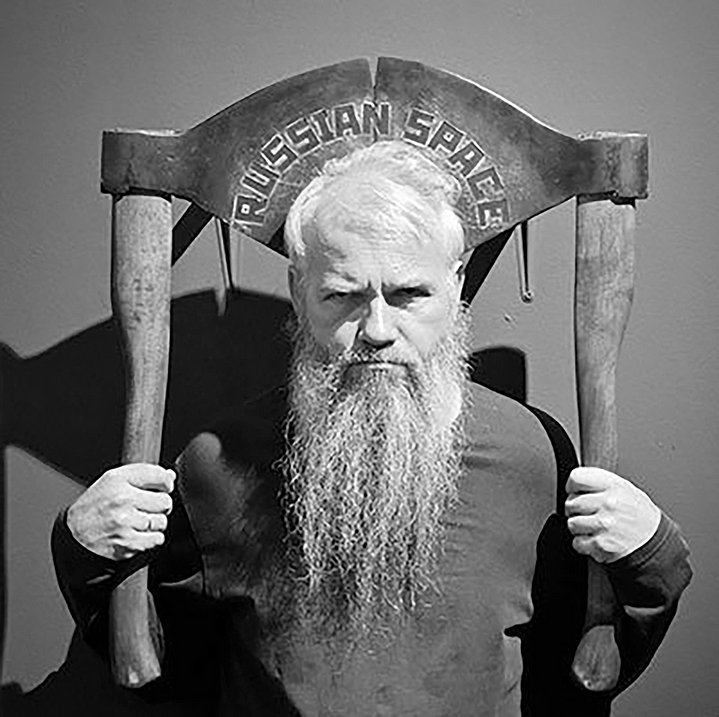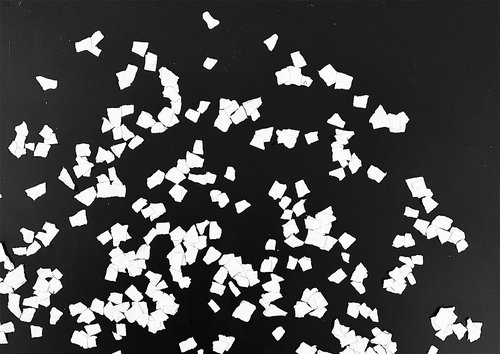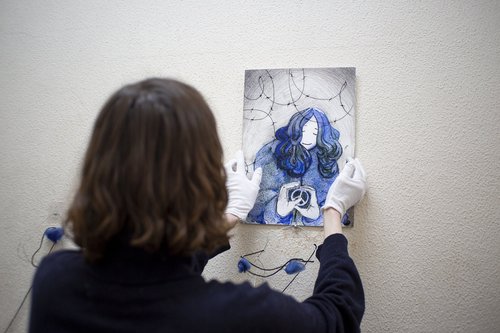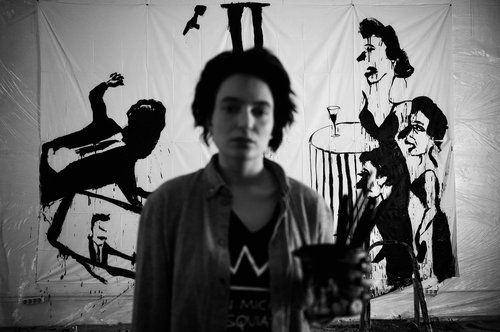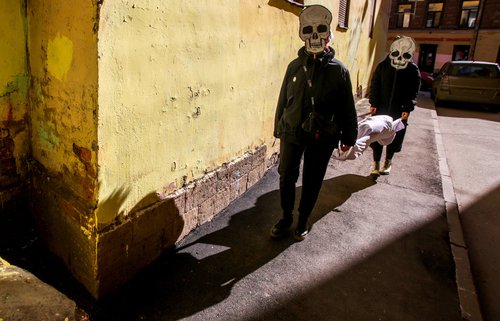Artistic Expression on Trial: The Perilous Landscape for Russian Creatives
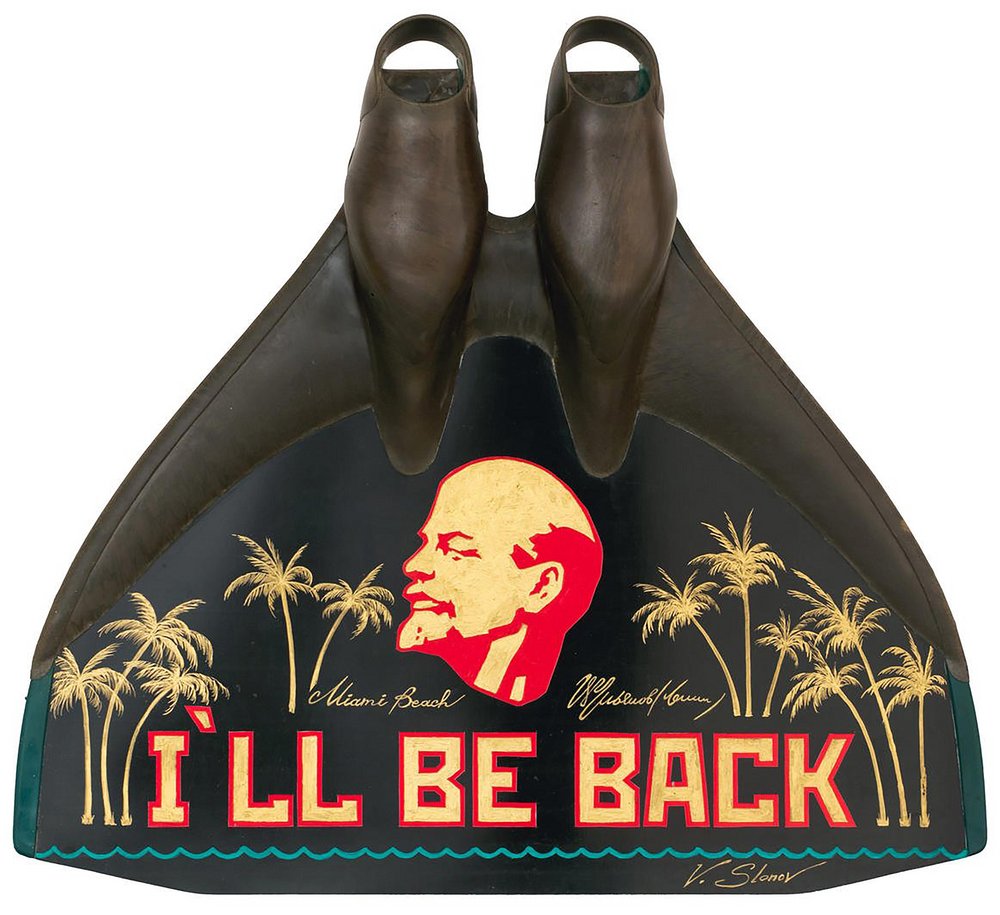
Vassily Slonov. Monofin 'I'll Be Back', 2016. Image from Vladey website
In Krasnoyarsk, Siberian artist Vassily Slonov finds himself entangled in a legal quagmire, facing criminal charges for an artwork he made out of a child’s toy. Currently under house arrest, Slonov is only one of a growing number of Russian creatives who have clashed with the authorities.
On February 7th, Russian law enforcement agents searched the apartment and studio of Krasnoyarsk based artist Vassily Slonov (b. 1969). They seized his computer and an art object he had made in which he had covered a traditional Russian roly-poly toy, known as a nevalyashka, with blue and white drawings imitating the crude tattoos on Russian prisoners. Just two days later, Slonov was detained at the city’s airport, en route to Kazakhstan, accused of attempting to flee justice because he had a one-way ticket. Now, he is under house arrest, awaiting trial and potentially facing up to four years in prison. Alarmingly, this is not illegal in Russia.
I recently conducted research into censorship in Russian state and private art institutions, and a spokesman at the Ministry of Culture gave me a list of topics which have been banned by law: “extremist materials, information containing profanity, propaganda of narcotic drugs, non-traditional sexual relations, paedophilia, change of gender etc.” According to the police, Slonov’s artwork falls into the first category. It was deemed extremist for drawing inspiration from prison tattoos associated with the AUE, allegedly a teenage criminal subculture. This rather convoluted reasoning behind its categorization reveals the pitfalls inherent in navigating Russia’s legal landscape for artists like Slonov.
It was not the first time that he came to the attention of the authorities. In the Autumn of 2023 Slonov received a fine for displaying his roly-poly at an exhibition in Krasnoyarsk. The police argue that the continued presence of the artwork on the artist’s social media pages constituted a repeated offence worthy of imprisonment.
Indeed, Slonov, a prominent figure in what is known as the Siberian Ironic Conceptualism movement, is no stranger to controversy. His politically charged artworks have faced opposition both in Russia and abroad. An exhibition in Perm mocking the hype surrounding the 2014 Sochi Olympics was shut down in 2013, and even at the Tbilisi Art Fair in 2018, his work was removed, ironically, accused of being Russian propaganda.
Such high-profile cases, like that of Vassily Slonov reverberate across the country, acting as cautionary tales fueling a cycle of censorship and self-censorship among artists, curators, and the leaders of art institutions. Even a professor at an art school I spoke with confessed to suppressing politically charged artworks by his students for fear of repercussions, which sadly shows the chilling effect on artistic expression in Russia today.
The alarming trend of artists facing severe legal consequences gained momentum after the passing of the ‘Law on Fakes’ in March 2022. Artist Sasha Skochilenko (b. 1990) received a seven-year sentence for “discrediting the Russian Armed Forces” by distributing leaflets in a supermarket.
While many of the laws used against artists did exist previously, their robust enforcement is a relatively recent phenomenon. Pavel Krisevich (b. 2000), a follower of performance artist Pyotr Pavlensky (b. 1984), was imprisoned for five years for a symbolic act in Red Square. In June 2021 he fired two shots in the air and one at himself – with blank munitions. Pavlensky himself, though routinely detained after each action, was never sentenced to a prison term in Russia, and has spent more time in detention in France for burning a bank door than in his homeland.
The period of pre-trial detention has lengthened, imposing a considerable toll on artists’ lives. Despite her poor health, including a heart condition, gluten enteropathy and bipolar disorder, Skochilenko spent almost two years in a detention facility before her trial. Director Evgenia Berkovich (b. 1985) and playwright Svetlana Petriychuk (b. 1980) have been in detention since May 2022, accused of ‘public justification of terrorism’, facing trial for a performance that won them two Golden Masks, Russia’s top award for the dramatic arts.
International campaigns of support have provided relief for some of the artists. Cases like that of theatre director Kirill Serebrennikov (b. 1969) and artist Yulia Tsvetkova (b. 1993), have been extensively covered in the global press, and resulted in milder sentences or acquittals. But have things changed? The question now looms large for those like Vassily Slonov who are currently entangled in punishing legal battles, can they elicit the same international sympathy as the world turns to more pressing geopolitical matters? In a landscape where conflicts abound, the fate of these artists remains uncertain, and relying on global support may be wishful thinking.






